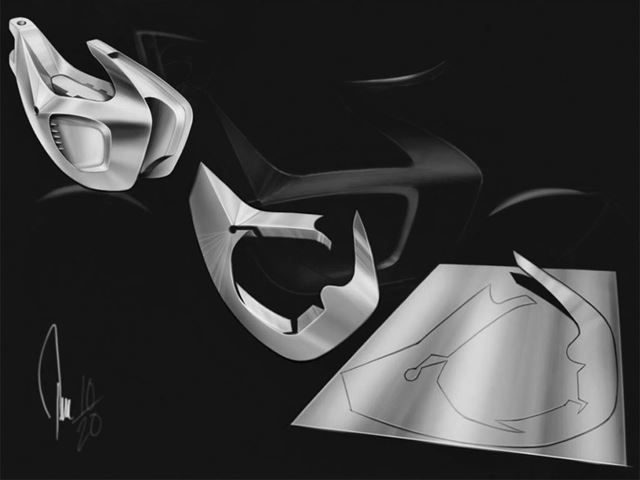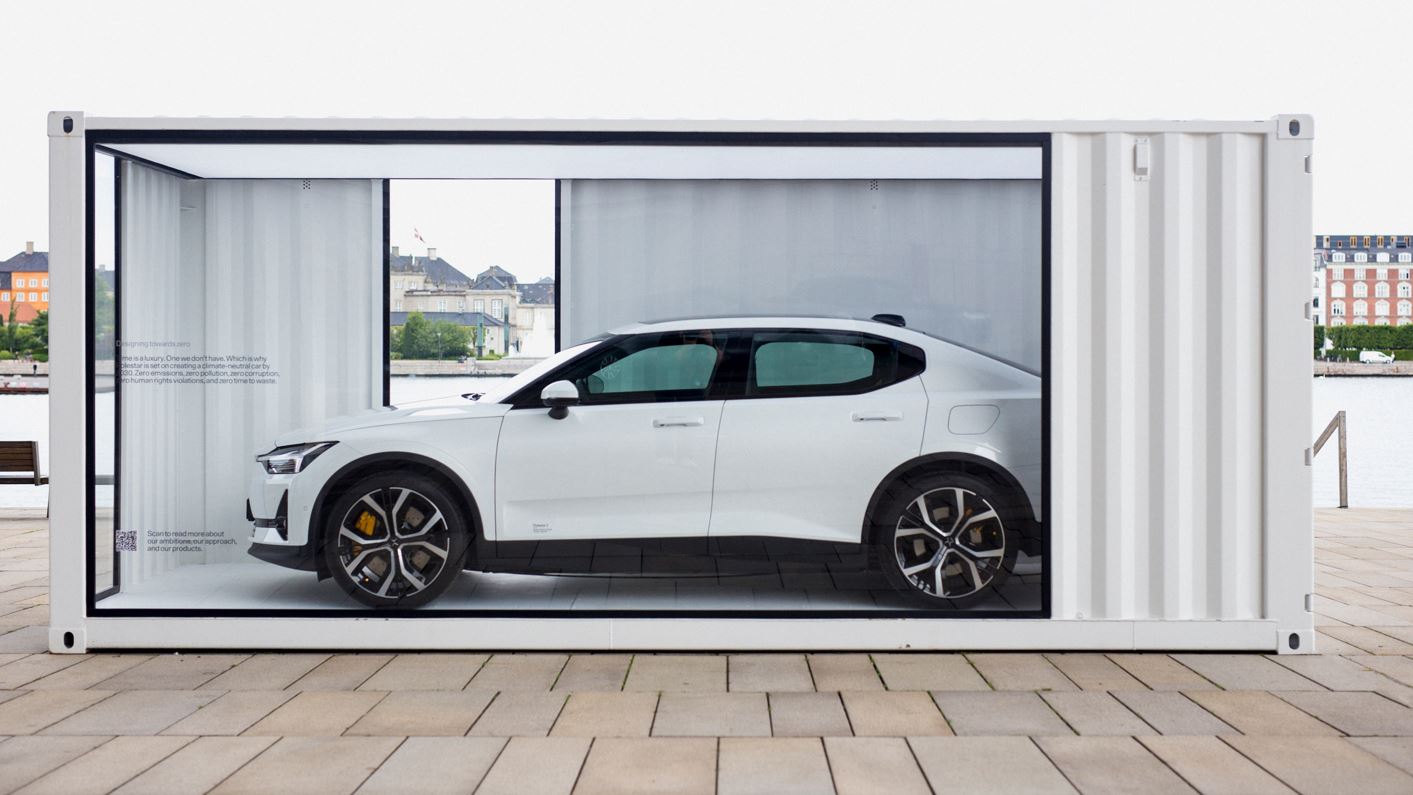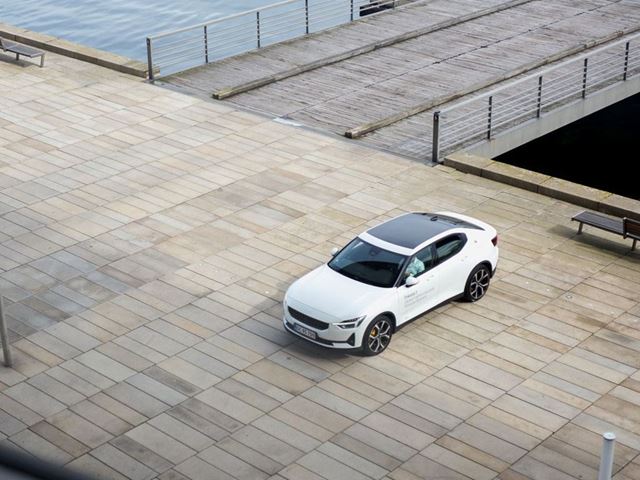
- Latest: Welcome to Auto Futures - Mobility News, Features, Exclusives and More...
- Latest: CATL Unveils Shenxing PLUS, Enabling 1,000-km Range and Superfast Charging
- Latest: Mercedes-Benz Announces In-car Gaming Cooperation With Tencent & Electronic Arts
- Latest: LG Chem & Factorial Announce Plans to Develop Solid-State Batteries
- Latest: Opel Unveils Next Generation All-Electric & Hybrid Grandland SUV
- Latest: The Rise of the Humanoid Robots (and how OEMS can Benefit) - Apptronik's CCO
Collaboration is key for Polestar's Plan to Create a Fully Climate-Neutral car - Polestar 0 Project Leader
Adrian Smith
- Oct 04 2022

The Polestar 0 project is Polestar's moon-shot goal of creating the first truly climate-neutral car by 2030. The scope of the project is to identify and eliminate all greenhouse gas emissions from the extraction of raw materials all the way up to when the car is delivered to the customer.
The electric performance car company is bringing together experts in plastics, composites, chemicals, materials and metals to decarbonise the car’s entire supply chain, manufacturing process and end of life. It recently issued a call for collaboration. It's currently looking to find partners who deal with material development, including those involved in mining, bio-based materials, and high-end man-made materials.
Auto Futures has been talking to Hans Pehrson, leader of the Polestar 0 Project and former Head of R&D at Polestar.
"The project targets what Polestar can measure and control: zero carbon emissions in the production of the car, delivery to customer, and end-of-life. The use phase of an electric car can already be close to climate neutral today, if the car is charged with renewable energy. The timeline for launching a car in 2030 means the research needs to be completed before 2025, when work with the car’s architecture will begin. By 2027 the vehicle project will start, therefore all research and advanced engineering tasks need to be finalized at that point, to be able to move into a true industrial production phase," says Pehrson.
STILRIDE - a Swedish startup that has developed sustainable manufacturing technology using origami-inspired steel folding robots - has been selected to work with Polestar to bring the Polestar 0 to life. Its STILFOLD technology involves the use of robotic arms to fold sheets of steel over curves to form intricate new structures using minimal materials and components.
"STILRIDE has partnered with the Polestar 0 project to help with green metal manufacturing and mobility using their proprietary STILFOLD technology, dubbed 'industrial origami'. STILRIDE will bring its unique sustainable manufacturing expertise to the table, playing a leading role in the development of innovative manufacturing solutions to produce the car’s frame whilst eradicating emissions." explains Pehrson.
"STILRIDE's origami technology will enable us to review current manufacturing methods and look at these methods from new directions, which is something that can be very useful in our journey towards zero GHG emissions."
Jonas Nyvang, CEO and co-founder at STILRIDE, comments: “We are always looking for new ways to advance our STILFOLD technology and reduce the automotive industry’s impact on the planet. The Polestar 0 project is a dream collaboration and is an incredible opportunity for leading minds to come together and work out how we can completely rethink vehicle manufacturing to benefit people and the planet. The journey to electrification is only just getting started and this landmark project has the potential to set a new gold standard for carbon-neutral e-mobility. We can’t wait to get started.”
Pehrson adds: "We work closely with carefully chosen suppliers and partners that share our ambition. It is important to have different partners with different backgrounds and possibilities. STILRIDE represent an area of new tech vision that always is important to bring when you look into the future."
The project's other partners include Autoliv, SSAB and ZF.

A Shift in Focus
Beyond the mobility sector, Polestar 0 aims to have a wider impact on consumers and the public in general.
"While the impact of the Polestar 0 project will not be apparent immediately, we are laying the groundwork for the whole automotive industry to significantly reduce their climate impact. Beyond cars, this project is also creating a demand for climate-progressive suppliers and stimulating new technologies needed to fight the climate crisis. This is the only way we can realistically meet the 1.5-degree target. It’s much bigger than Polestar and this specific project. Many of the material solutions that come out of Polestar 0 will have far wider implications than just the automotive industry. Exponential tech advancements in lithium-ion batteries, material manufacturing, and textiles can provide climate neutral solutions for everyday products," says Pehrson.
He also believes that governments need to be involved in the process of promoting EVs. He says a fully sustainable society requires us all to work together in unprecedented ways.
"With just 1.5 percent of the vehicles on the road being electric today, it is clear we are living in an EV bubble, not an EV boom. This decade is the most critical we have ever faced when it comes to not overshooting the Paris agreement. We need governments to lead the charge with robust policies, both on infrastructure and addressing electricity prices so that drivers can confidently go electric, but more importantly, car makers must act now and not wait for policy changes," he adds.

"Purchasing a car, any car, has an Impact on the Planet."
We finsihed our interview by asking Pehrson what more needs to be done by OEMs to promote EVs.
"We’re finding ourselves in an industry historically fraught with indisputable transparency problems and scandals that have severally damaged consumer trust," he answers.
"Consumers are a large driving force in the shift to a sustainable economy, and we believe they need to have access to the right tools to make informed and environmentally-friendly decisions. Because purchasing a car, any car, has an impact on the planet. And to determine that impact, Life Cycle Assessments (LCA) must be completed. That’s where the car makers come in, determining a framework to measure the environmental impact and – as in Polestar’s case – communicating transparently about it."
"As a consumer, an LCA should give you transparent and practical information about the impact of a product. In the case of an EV, information about emissions from materials production, manufacturing, how the type of electricity used when charging affects use phase emissions, and so on. But it’s also a tool that allows you to compare models and make informed decisions when purchasing a car. In fact, the LCA shows that Polestar 2 is already a climate solution. EV technology provides a car with less than half the carbon impact of an equivalent petrol car if charged with green energy," concludes Pehrson,
Popular Categories
